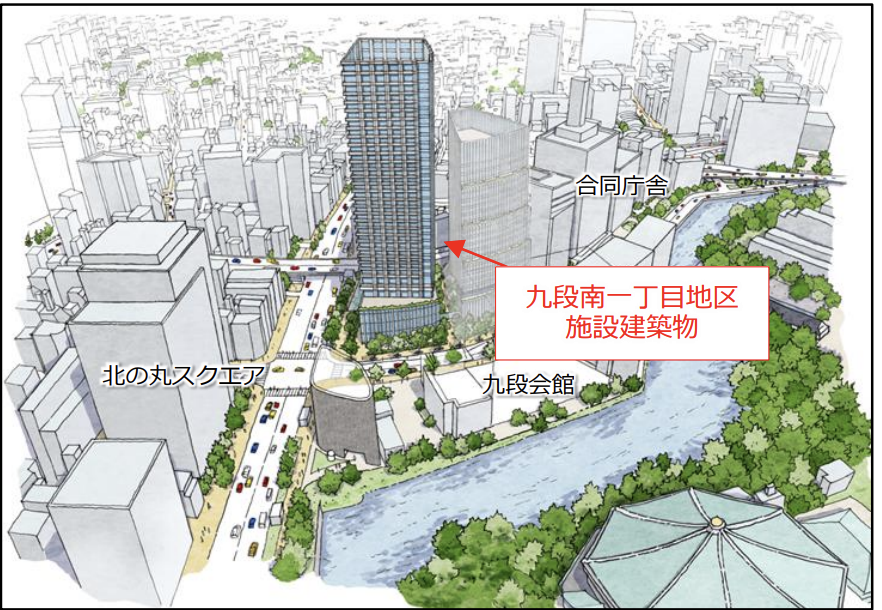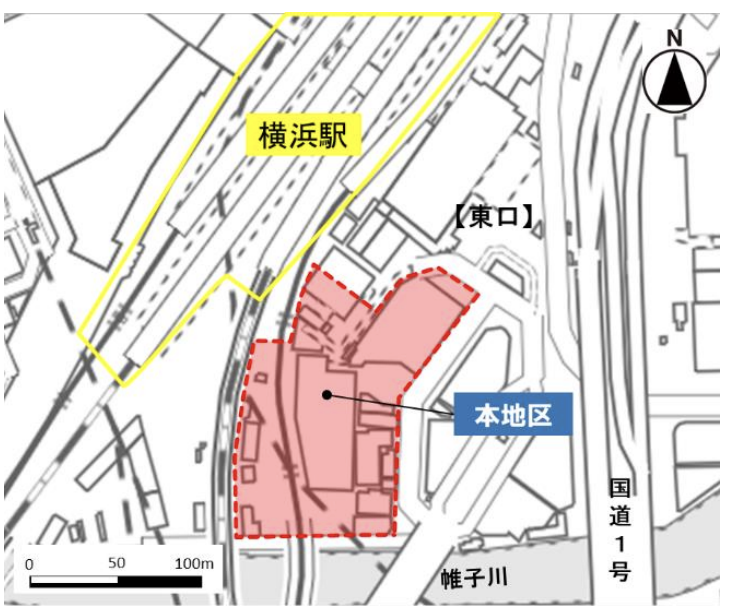The essence of the optimal investment strategy for 2025 for Japan's ultra-high-net-worth individuals lies in the balance between diversification and concentration. At first glance, the heavy real assets of real estate investment and the sophisticated financial instrument framework of the NISA system may appear to be opposite investment methods, but a deep understanding of the characteristics of both and their strategic combination will enable asset building that transcends generations. The essence of asset management is not simply the pursuit of yield, but the design and preservation of wealth from a long-term perspective.
Real Estate Investment and NISA: Basic Structure in 2025
While real estate investment and NISA have fundamentally different characteristics, they can complement each other with the right combination.
Comparison of Basic Characteristics
Real estate investments are direct investments in real assets. As of 2025, Japan's real estate market is experiencing stable growth, especially in central Tokyo, and JLL's research shows that the amount of investment exceeds 5 trillion yen, with the office (37%) and hotel (21%) sectors in particular booming. The office (37%) and hotel (21%) sectors in particular are booming.
In contrast, the NISA is an investment "vessel" and a tax incentive system, and the new NISA system, which was fundamentally reformed in 2024, allows for tax-free investment of up to ¥3.6 million per year, consisting of a "reserve investment limit" (¥1.2 million per year) and a "growth investment limit" (¥2.4 million per year). The biggest change is that the tax exemption is permanent and the tax exemption period is indefinite, which brings great benefits for long-term asset building.
Differences in Investment Scale and Eligibility
Real estate investment usually requires funds in the tens to hundreds of millions of yen. NISA, on the other hand, allows people to start with a small amount, with an annual investment limit of 3.6 million yen and a limited lifetime investment limit of 18 million yen. For the ultra-high-net-worth individuals, the NISA investment limit is only a small portion of their total assets, but it can be used strategically as a showcase for tax-efficient investments.
Tax advantages and disadvantages in 2025
NISA: The Ultimate in Tax Efficiency
The most attractive feature of NISA is the complete tax exemption of investment income. Normally, dividends and gains from the sale of stock investments are subject to a tax of approximately 20.315% (15.315% income tax and 5% inhabitant tax), but within a NISA account, this is completely tax-free. Under the new NISA system, the tax-free period is made indefinite, allowing for maximum compounding effect.
For example, if you invest your money at 5% per annum for 20 years, the after-tax return in a taxable account will be about 4%, which is about 2.2 times the principal amount on a compound basis, whereas in a NISA account it will be about 2.7 times. This difference increases with longer investment period and higher investment yield.
The disadvantages include the inability to aggregate gains and losses and the limitation of investment limits. For ultra-high-net-worth individuals, the lifetime investment limit of 18 million yen is a limitation.
Real Estate Investment: Complex Tax Strategies
The tax benefits of real estate investment are multifaceted. The tax savings from depreciation is especially attractive to high-income earners. Taxable income can be reduced because the building value can be expensed over a depreciation period of 22 years for wooden buildings and 47 years for reinforced concrete buildings.
Also important is the reduction of transfer income tax due to long-term holding (over 5 years) and the effect of reduced valuation at the time of inheritance. The inheritance tax assessed value of real estate tends to be lower than the actual value because land is calculated based on roadside land prices and buildings are calculated based on fixed asset tax assessed values.
Disadvantages include the tax burden of real estate acquisition tax, registration and license tax, and stamp tax at the time of acquisition, as well as fixed asset tax and city planning tax during possession. In addition, construction costs are expected to rise with the mandatory compliance with energy conservation standards for all new houses starting in April 2025.
Understanding the different risk/return structures
Access to financial markets through NISA
NISA allows investors to invest in a variety of financial instruments such as stocks, bonds, and mutual funds, allowing them to flexibly adjust their risk/return characteristics. In particular, investment based on the principles of long-term, accumulation, and diversification mitigates the risk of short-term market fluctuations and provides stable returns over the long term.
According to an analysis by the Financial Services Agency, the probability of negative returns is significantly reduced when investing in domestic and foreign equities for 20 years or more. On the other hand, price fluctuation risk is high in the short term, and there is no guarantee of principal.
Characteristics of Real Estate Investment
Real estate investment is positioned as a middle-risk, middle-return investment. Income gains from rental income are relatively stable, especially for well-located properties.
In 2025, the rent level for Grade A office space in Tokyo is projected to be 35,000 yen per tsubo based on normal times, with an annual rent increase rate of 3%, and stable cash flow can be expected. There is also the potential for capital gains from rising real estate prices.
Risks include vacancy risk, rent decline risk, asset value decline risk, interest rate rise risk, repair and maintenance risk, and liquidity risk. Particular attention should be paid to the possibility of downward pressure on local real estate values due to the "2025 problem" (all baby boomers will be elderly later in life).
Comparison as a long-term investment
Real estate: an asset that transcends generations
The greatest strength of real estate investment is the compounding benefits of long-term ownership. If the quality and location of the property is emphasized, the investment can be expected to have stable value over time, an inflation hedge effect, and easy intergenerational asset succession.
Demand for real estate in central Tokyo, especially in well-located areas, tends to be maintained even under a declining population. In the long term, there is also the potential for increased income gains from rising rents and capital gains from rising property values.
NISA: Power of Time to Maximize Tax Benefits
The new NISA system has made the tax exemption period indefinite, which significantly improves the benefits of long-term investment. Investment income continues to be reinvested tax-free, maximizing the compound interest effect and allowing assets to grow efficiently over the long term.
For example, if you invest 30,000 yen per month for 50 years in global equities, a simulation by Nomura Securities estimates that it would amount to approximately 243.28 million yen (approximately 13.5 times the cumulative investment amount).
Matching Investor Profile
Suitable investors for real estate investment
Real estate investment is particularly suitable for the following types of investors
- Investors with a long-term perspective: Those who value long-term asset building over short-term price fluctuations
- Investors seeking stable cash flow: Retirees and dividend-oriented investors who value regular income
- Investors seeking tax planning: High-income earners and corporations that want to take advantage of tax savings from depreciation
- Investors seeking leverage: Those seeking asset building through borrowing
- High-net-worth individuals planning to pass on assets to the next generation: Those planning to pass on assets to the next generation
Suitable investors for NISA
NISA is particularly suitable for the following types of investors
- Long-term, accumulated and diversified investment practitioners: Those who aim to build assets by leveraging the power of time
- Investors who wish to maximize tax benefits: Those who wish to save taxes on investment income
- Investors who value liquidity: Those who seek the flexibility to cash out assets when needed.
- Investors who want efficient diversification from small amounts: Investors who want to invest in a variety of domestic and foreign assets from small amounts.
Optimal Balance for Ultra High Net Worth Individuals
For the ultra-high-net-worth investor (UHNWI), a strategic combination of both investment approaches as part of an overall portfolio of assets is ideal. according to Altrata research, ultra-high-net-worth individuals (UHNWI) on average allocate about 21% of their assets to investment real estate. nISA is a small portion of that percentage. but it plays an important role due to its tax-efficiency.
Practical Investment Strategies: Synergistic Effects of Combining the Two
Strategy 1: Optimization through tiered asset allocation
An effective strategy is to divide assets into the following three tiers
- Foundation Tier (50-60% of assets): Emphasis on stability, such as prime real estate, bonds, and stocks of blue-chip companies in urban areas.
- Growth Tier (30-40% of assets): Growth-oriented assets such as global equities and overseas real estate in the NISA growth allowance.
- Opportunity layer (10-20% of assets): High-risk, high-return investments such as private equity and venture investments
This tiered allocation will ensure a balance between stability and growth, while also ensuring sufficient capacity to invest in opportunities.
Strategy 2: Cash Flow Optimization
By combining stable rental income from real estate with tax-free dividend income within your NISA account, you can build an efficient cash flow structure. For example:
- Real estate investment: Secure stable income with 3-5% annual rental yield
- NISA growth investment line: Invest in high-dividend stocks and REITs to earn tax-free dividend income (3-4%)
- NISA savings account: Index investment aiming for long-term growth (expected return of 5-7%)
This combination enables both short-term income and long-term asset growth.
Strategy 3: Combined Strategy for Inflation Protection
In 2025, Japan is experiencing a moderate inflationary trend; according to JLL's market research, the Tokyo residential real estate price index is up 8.14% year over year (3.95% inflation-adjusted), which acts as an inflation hedge.
As a hedge against inflation, a combination of real estate investment and NISA is the best way to protect against inflation:
- Investing in urban real estate: Rents can be expected to rise and asset values to increase during inflationary times.
- Inflation-responsive investment within NISA: Invest in REITs, commodity ETFs, inflation-indexed bonds, etc. with the growth investment quota
- Utilize fixed interest rates: Low-rate fixed loans for real estate purchases reduce the real burden during times of inflation
This combined strategy allows you to build a portfolio that is resilient to inflation.
Strategy 4: Design for inheritance and business succession
Trans-generational asset succession is an important theme for the ultra-high-net-worth individuals. Inheritance strategies that combine real estate and NISA include:
- Utilizing the effect of reduced valuation of real estate for inheritance tax purposes: Use of valuation reductions as rental real estate and special exceptions for small residential lots, etc.
- Use of NISA for all family members: Maximize the tax exemption for the entire family by utilizing the NISA accounts of spouses and children.
- Planned gifts during one's lifetime: Transfer funds to the younger generation within the basic exemption of 1.1 million yen per year and invest them in NISA.
- Utilize asset management companies: Incorporate real estate ownership and plan for management succession and asset succession in parallel.
These strategies can optimize the tax burden and ensure smooth asset succession.
Investment Strategies to Develop Human Capital
It is important to design a strategy that achieves growth of assets and people at the same time, rather than merely pursuing yield.
Asset management to nurture the next generation
Educating the younger generation about asset building through a combination of real estate and NISA will lead to true asset succession. For example:
- Entrust the younger generation with the operation and management of small-scale real estate to gain practical experience.
- Implement investment education programs utilizing NISA
- Sharing investment reports and investment decisions at family meetings
This will enable the inheritance of not only assets but also investment knowledge and mindset.
Socially Responsible Investments
Investments by ultra-high-net-worth individuals involve social responsibility. It is important to incorporate the following perspectives into investment decisions
- Investing in real estate with high environmental performance (in anticipation of mandatory compliance with energy conservation standards in 2025)
- Practicing ESG investment with the NISA Growth Investment Limit
- Participation in real estate development that leads to regional revitalization
Investments that grow with society will provide sustainable returns over the long term.
Conclusion: Flexible control over the two wings of asset building
In Japan in 2025, real estate investment and NISA are the two wings of asset building that play complementary roles. Real estate investment provides stability, tax benefits, inflation protection, and a foundation for asset succession, while NISA offers tax efficiency, liquidity, and access to a variety of financial products.
The optimal strategy for ultra-high-net-worth individuals is a comprehensive asset design that combines With prime real estate at the core of the portfolio and the NISA serving as an efficient financial asset management framework, an asset structure that combines stability and growth can be achieved.
What is important is to view these investment methods not merely as a means of pursuing yield, but as a foundation for value creation that transcends generations. Investments that contribute to society, where assets and people grow together, are what lead to true wealth creation.
The strategic combination of real estate investment and NISA, based on the basic principles of long-term perspective, appropriate diversification, optimization of tax efficiency, and nurturing the next generation, will enable sustainable asset building even in a fluctuating economic environment.

Daisuke Inazawa
Representative Director of INA&Associates Inc. Based in Osaka, Tokyo, and Kanagawa, he is engaged in real estate sales, leasing, and management. He provides services based on his extensive experience in the real estate industry. Based on the philosophy that “human resources are a company's most important asset,” he places great importance on human resource development. He continues to take on the challenge of creating sustainable corporate value.

.png)













